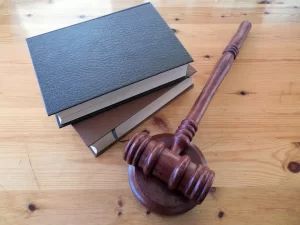Table of Contents
ToggleSue if you are at Fault for a Car Accident
You can sue even if you are at fault for a car accident in Florida. That said, you must have suffered serious injuries from someone else’s negligence to have the grounds for a lawsuit. Florida’s no-fault and comparative negligence laws may make it possible for you to take legal action after an accident. For a personalized assessment of your legal options, contact our car accident lawyers today at (954) 633-8270.
Florida’s Car Accident Fault Laws
Victims of car accidents in Florida are often confused by the state’s fault laws, which boil down to two specific aspects:
- No-fault
- Pure comparative negligence
Given that Florida is labeled a no-fault state, you may assume fault won’t play any role in your case. This is sometimes true if you did not suffer serious injuries, you will likely go through your own personal injury protection (PIP) coverage to receive some compensation for medical bills and lost income.
If you suffered high costs from serious injuries, your insurance may not cover all your losses. You have the option of pursuing the other party to help pay for your losses. This is where pure comparative negligence comes in. In other words, Florida is a no-fault state for most cases, but serious ones allow you to pursue compensation based on fault.
What Is Comparative Negligence Car Accident Cases?
Comparative negligence looks at an accident and determines the percentage of each party’s responsibility. Rather than simply deeming one person the culprit, comparative negligence divides responsibility according to each person’s actions. There are two types of comparative negligence:
- Pure comparative Negligence: Anyone can pursue compensation for the percentage of the accident that wasn’t their fault
- Modified comparative Negligence: Only someone less than 51 percent at fault can pursue compensation
Let’s say you were in a T-bone collision at an intersection. You may have hit the other vehicle because you looked at your GPS, which makes you assume you are the one at fault. However, if the other driver ran a red light while drunk when you hit them, assigning fault is less cut and dry. After all, although you failed to look, they drove drunk and disobeyed a traffic signal.
Florida is a pure comparative negligence state, as outlined in Florida Statutes § 768.81. Florida’s pure comparative laws might mean you are assigned 30 percent of the fault and the other driver is assigned 70 percent. That means you could recover 70 percent of your damages from the accident.
As a result, even if you were considered at fault for a crash, you can still potentially pursue some damages to help cover your losses.
Who Decides Fault Car Accident?
There are several parties who can determine fault in a case, including:
- Police
- Insurance adjusters
- Juries
Even then, what a police report or insurance adjuster concludes doesn’t mean you are out of options. Some cases even go to court specifically because of disputes over how fault is assigned.
If you aren’t sure how fault is assigned in your case, or you feel it was disproportionately assigned to you, our car accident attorneys Florida can conduct our own investigation and negotiate with insurance adjusters. If necessary and if you are eligible, we can present your case to a jury in court.
When You Can Sue for a Car Accident?
Since Florida is a no-fault state, you can only sue under certain circumstances. The main determining factor for a personal injury lawsuit is the severity of your accident-related losses.
According to Florida Highway Safety and Motor Vehicles (FLHSMV), the minimum required amount of PIP coverage in Florida is $10,000. According to Healthcare.gov, care for a broken leg alone costs $7,500. Clearly, it wouldn’t take much for a car accident injury claim to exceed your minimum coverage. Plus, PIP only covers 80 percent of your medical costs.
As a result, the state has a serious injury threshold for filing personal injury lawsuits. If you meet it, you can pursue a personal injury lawsuit against another driver to help compensate you for your medical bills, lost income, and even pain and suffering. While your overall compensation is reduced by your portion of fault, these damages can still help you mitigate your losses following a car accident.
What Qualifies as a Serious Injury ?
According to Florida Statutes § 627.737, the following qualifies as a serious injury and grounds for a lawsuit:
- Significant and permanent loss of an important bodily function
- Permanent injury
- Significant and permanent scarring or disfigurement
- Death
If you have questions about how your injury fits into Florida’s serious injury threshold, don’t hesitate to reach out to a Fort Lauderdale personal injury law firm.
Contact Us To Find Out About Suing After a Florida Car Accident
You don’t have to wonder about your options for compensation following a motor vehicle crash in Florida. If you are worried about your level of fault and how that will affect your ability to sue, Contact the Law Offices of Wolf & Pravato today. Dial (954) 633-8270 for a free consultation.






















